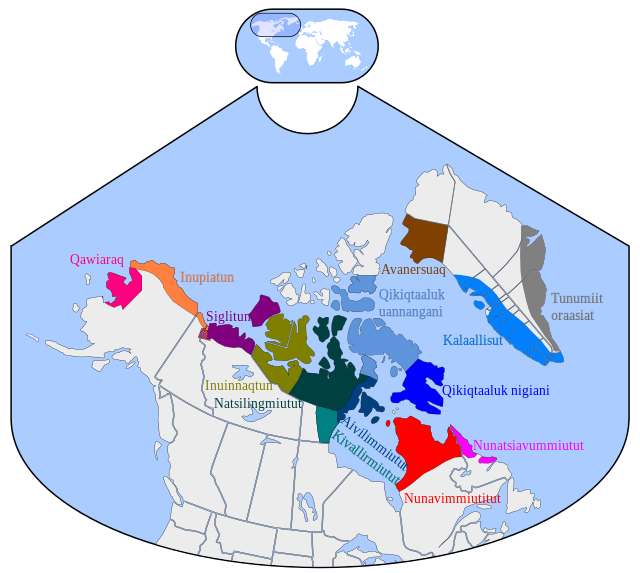Top Qs
Timeline
Chat
Perspective
Inuinnaqtun
Inuit language From Wikipedia, the free encyclopedia
Remove ads
Inuinnaqtun (ᐃᓄᐃᓐᓇᖅᑐᓐ, Inuinnaqtun pronunciation: [inuinːɑqtun]; natively meaning 'like the real human beings/peoples') is an Inuit language. It is spoken in the central Canadian Arctic. It is related very closely to Inuktitut, and some scholars, such as Richard Condon, believe that Inuinnaqtun is more appropriately classified as a dialect of Inuktitut.[4] The government of Nunavut recognises Inuinnaqtun as an official language in addition to Inuktitut, and together sometimes referred to as Inuktut.[2][5] It is spoken in the Northwest Territories as well and is recognised as an official language of the territory in addition to Inuvialuktun and Inuktitut.[3]
Inuinnaqtun is used primarily in the communities of Cambridge Bay, Kugluktuk and Gjoa Haven in the Kitikmeot Region of Nunavut. Outside Nunavut, it is spoken in the hamlet of Ulukhaktok, Northwest Territories,[6] where it is also known as Kangiryuarmiutun, forming a part of Inuvialuktun.[7] It is written using the Roman orthography[8] except in Gjoa Haven, where Inuit syllabics are used (as for Natsilingmiutut).
Remove ads
Inuinnaqtun phrases

Remove ads
See also
References
Further reading
External links
Wikiwand - on
Seamless Wikipedia browsing. On steroids.
Remove ads


